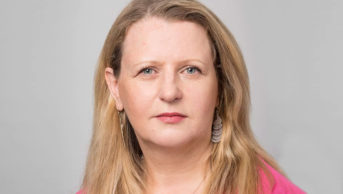
Royal Pharmaceutical Society
A report on professional leadership — commissioned by the four UK chief pharmaceutical officers — has called on all pharmacy leadership bodies to form an “inclusive federation” to work on setting post-registration standards for pharmacists and pharmacy technicians.
It proposes that the new federation, the ‘Pharmacy Leadership Council’, will be formed of representatives from the Royal Pharmaceutical Society (RPS), the Association of Pharmacy Technicians UK (APTUK), the Pharmacy Forum Northern Ireland and other specialist clinical pharmacy associations. It will also have an independent chair and other expert members.
The recommendations are outlined in the final report from the UK Commission on Pharmacy Professional Leadership, published on 6 February 2023.
The Commission was set up in May 2022 by the four chief pharmaceutical officers to provide advice on the future of pharmacy professional leadership in the UK.
The members of the Pharmacy Leadership Council will be appointed by the four UK chief pharmaceutical officers and will be tasked with creating a five-year strategy on how to set professional standards in pharmacy, provide education and training, and be a “coordinated and authoritative voice” to influence national policy development and improve patient care.
The professional bodies can choose whether or not to join the council and will retain their independence over five years, but will have a “duty to collaborate” together.
The commission’s report makes no firm recommendations about what should happen after the five-year period, but does suggest that one option may be forming a new all-encompassing professional leadership body.
Chaired by Nigel Clarke, former chair of the General Pharmaceutical Council, and Dame Jane Dacre, professor of medical education at University College London and former president of the Royal College of Physicians, the report claims that the current “disjointed voice” of different leadership bodies in pharmacy is “holding back pharmacy from making the best contribution to UK healthcare”.
The report concludes: “The most desirable option is the creation of a council which will support and steer a process of evolution, matching the speed of change in healthcare and pharmacy professional practice more widely, and this forms an imperative objective of the commission.”
In a joint statement, Dacre and Clarke said: “The commission has set out a collaborative approach to transform pharmacy professional leadership and deliver sustained benefits for patients and the public and pharmacy professionals in the UK. Pharmacy is at its time of greatest opportunity and pharmacy professional leadership as a whole urgently needs a strong and united voice.”
Also in a joint statement, Andrew Evans, Cathy Harrison, Alison Strath and David Webb — the chief pharmaceutical officers for Wales, Northern Ireland, Scotland and England, respectively — said: “We welcome the commission’s report and will now move swiftly to establish a collaborative, UK-wide Pharmacy Leadership Council to lead delivery of its recommendations and ensure we equip and support the pharmacy professions for the opportunities and challenges ahead.
“The vision is for authoritative leadership with a coordinated voice to lead and represent the pharmacy professions effectively for the benefit of patients and local communities, working alongside other important stakeholders.”
A statement from the RPS said: “The report makes a number of very significant recommendations to the four UK chief pharmaceutical officers and their response to the report, as well as the report itself, will require careful and detailed scrutiny.
“Our priority now is to listen to our members and to pharmacy organisations and to understand everyone’s views on the findings and recommendations.
“We recognise our role in pharmacy professional leadership needs to be different and more inclusive. There is a need to create an agenda for reform with substantial changes that will stand the test of time. This will require the RPS, and others, to spend time considering the most effective way of implementing transformational change.”
Claire Steele, President of APTUK, said: “APTUK would like to thank all pharmacy technicians who participated in and contributed to the work of the commission. We are pleased to see our collective efforts recognised in the recommendations for parity, equal status and mutual respect. It is important for APTUK to see these key points for the pharmacy technician profession being upheld throughout any subsequent process.
“We will take time to consider the recommendations and listen to our members’ views before providing any further statements.”
Eamon O’Donnell, chair of Pharmacy Forum NI, commented: “Pharmacy Forum NI broadly welcomes the direction of travel of the commission’s recommendations, namely a collaborative approach to leadership across the UK to maximise our impact and amplify the voice of pharmacy.
“We look forward to working with the other professional leadership bodies and special professional groups to take this onto the next stage when we have all had time to consider our separate responses.”
Pharmacy Forum NI was approached for comment.
- This story was updated at 10:25 and 16:00 on 6 February 2023 to include comment from the Association of Pharmacy Technicians UK and Pharmacy Forum Northern Ireland, respectively
1 comment
You must be logged in to post a comment.



Regardless of merits the new body might have, in terms of accountability could the PJ explain to whom the new body would be accountable? The Chief Pharmaceutical Officers are all appointed by individual UK nations (ignoring for the moment NI government problems), and are accountable to their respective governments. Is the creation of the new body something that all four nations will need to endorse, or from where else will it it derive its authority. Who will scrutinise its budgets and who will be responsible for ensuring its accounts are audited?